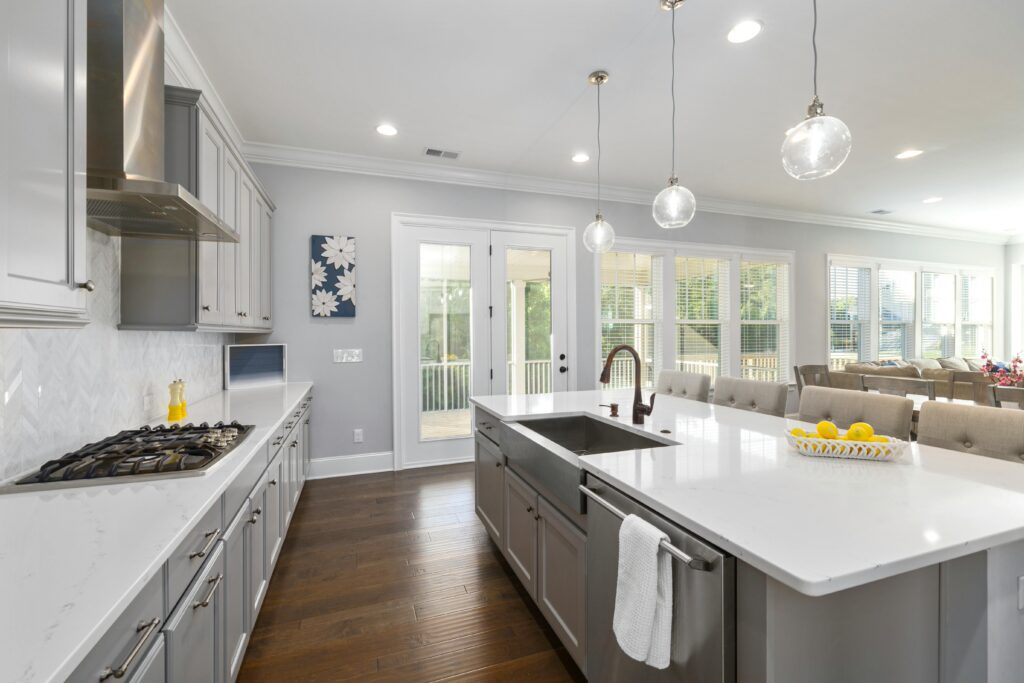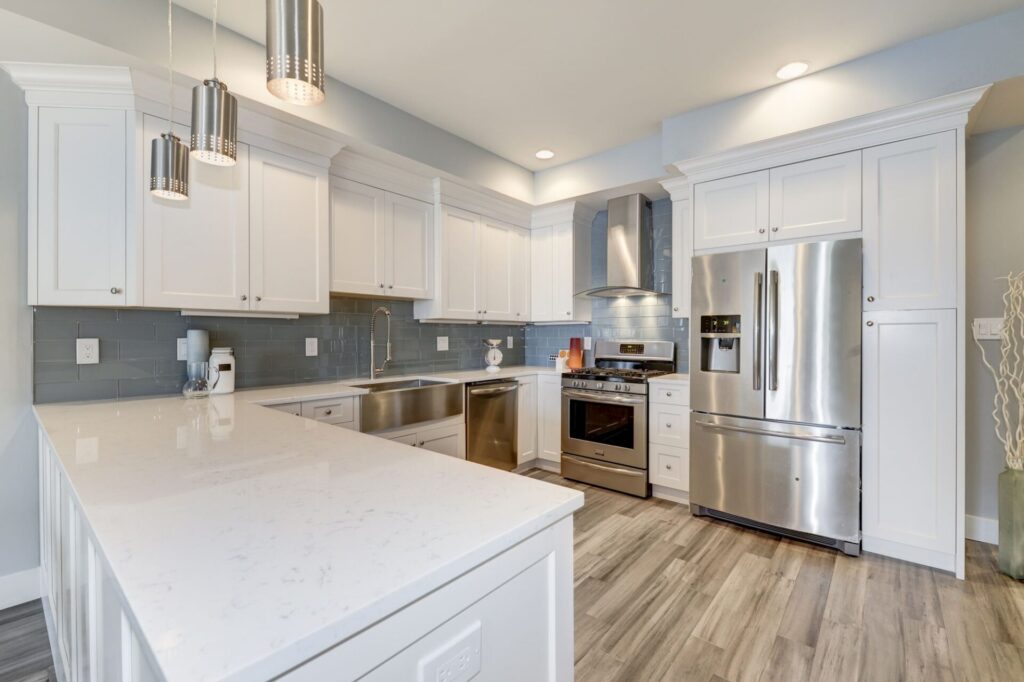Avoid costly errors when hiring roofing contractors. Get smart tips to pick the right pro and complete your roofing project hassle-free.
Your roof is one of the most important parts of your home. It protects you from weather, keeps your home energy-efficient, and adds to the overall value of your property. When your roof needs repair or replacement, hiring the right contractor is crucial. A poor choice can lead to costly problems, delays, or even unsafe work.
In this guide, we’ll walk through common mistakes homeowners make when hiring roofing contractors and show you how to avoid them. Along the way, you’ll find easy-to-follow tips, useful checklists, and links to helpful tools.
Why Choosing the Right Roofing Contractor Matters
Before diving into mistakes, it’s important to understand why your choice of contractor matters:
- Quality of Work: A good contractor will install your roof properly, preventing leaks and structural damage.
- Budget Management: They will provide clear estimates and avoid surprise costs.
- Safety: Roofing can be dangerous. Trained professionals follow safety guidelines.
- Warranty & Insurance: A reputable contractor offers warranties and has insurance to protect you.
Mistake #1: Not Checking Credentials and Licenses
One of the biggest mistakes is hiring a contractor without verifying their license and credentials. Roofing requires specific skills, and many states require contractors to be licensed.
What to do:
- Ask for license and insurance documents. Verify licenses with your state’s licensing board.
- Check for insurance: Make sure they have both liability and worker’s compensation insurance.
- Look for certifications from roofing manufacturers (e.g., GAF, CertainTeed).
Mistake #2: Choosing the Lowest Bid Without Comparing
While it might be tempting to pick the cheapest bid, it often means lower quality materials or rushed work. Not all bids cover the same work, so comparing them blindly can backfire.
How to compare bids correctly:
| Bid Factor | What to Look For | Questions to Ask |
|---|---|---|
| Scope of Work | Detailed description of materials and services | What exactly is included? |
| Material Quality | Brands and specifications | Are these materials durable? |
| Labor & Timeframe | Estimated work hours and project timeline | How long will the project take? |
| Cleanup & Disposal | How will debris be handled? | Will you clean up daily and after? |
| Warranty | What’s covered and for how long | Is workmanship and materials covered? |
Always ask for at least three bids and compare using a checklist.
Mistake #3: Not Reading the Contract Thoroughly
A roofing contract is your protection. It should clearly outline work, materials, cost, timeline, and warranty. Missing details or vague contracts can lead to disputes later.
What to watch for in a roofing contract:
- Total cost and payment schedule
- Detailed description of materials and brands
- Project start and completion dates
- Cleanup responsibilities
- Warranty details on labor and materials
- Procedures for handling unexpected costs
Mistake #4: Skipping References and Reviews
It’s important to know how a contractor has performed for previous customers. Skipping references means you risk hiring someone with a poor track record.
How to check:
- Ask the contractor for references. Call at least 3 past clients.
- Look up online reviews on sites.
- Visit completed projects if possible to inspect quality.
Mistake #5: Not Verifying the Contractor’s Workmanship Warranty
Many roofing problems appear months or years after installation. A workmanship warranty protects you from poor installation errors.
What to look for:
- Warranty length (typically 5 to 10 years)
- What is covered (labor, repairs, leaks)
- Whether the warranty is backed by the manufacturer or just the contractor
Mistake #6: Paying the Full Amount Upfront
Avoid paying the entire cost upfront. Reliable contractors usually require a deposit (e.g., 10-30%), with the remainder paid after milestones or completion.
Payment tips:
- Never pay cash without a receipt.
- Use payment methods that provide a paper trail.
- Include payment terms in the contract.
Mistake #7: Not Preparing Your Home Properly
Many homeowners don’t prepare for the roofing project, which can lead to damage to plants, vehicles, or outdoor equipment.
Preparation checklist:
- Move vehicles away from the house.
- Cover outdoor furniture and plants.
- Inform neighbors of the upcoming project.
- Secure pets and children indoors.
Mistake #8: Ignoring Local Building Codes and Permits
Roofing work often requires permits. Ignoring this can result in fines and insurance issues.
What to do:
- Ask if the contractor will handle permits.
- Check with your local building department about permit requirements.
- Ensure the contractor follows local codes and inspection processes.
Step-by-Step Template: How to Hire a Roofing Contractor
Here’s a simple step-by-step template you can follow:
| Step | Action | Notes |
|---|---|---|
| 1 | Get at least 3 detailed bids | Use the bid comparison checklist above |
| 2 | Check licenses, insurance, and certifications | Verify online where possible |
| 3 | Read the contract thoroughly | Ask questions on anything unclear |
| 4 | Contact references and check reviews | Visit previous jobs if you can |
| 5 | Confirm warranty details | Get it in writing |
| 6 | Prepare your home for roofing work | Use the preparation checklist above |
| 7 | Schedule the project and agree on payment terms | Avoid paying the full amount upfront |
| 8 | Monitor the work and maintain communication | Stay in touch with the contractor |
| 9 | Inspect the finished job before final payment | Make sure everything is done properly |
Visual: Roofing Contractor Hiring Checklist
Here’s a simple checklist you can print or save:
| Task | Completed (✓) |
|---|---|
| Obtained 3+ bids | |
| Verified licenses & insurance | |
| Read and signed a clear contract | |
| Contacted references | |
| Reviewed warranty coverage | |
| Prepared home for roofing work | |
| Agreed on payment schedule | |
| Monitored work progress | |
| Inspected completed roof |
How to Spot Red Flags When Hiring a Contractor
Here are some quick warning signs to avoid:
- Contractor asks for full payment upfront.
- No physical business address or phone number.
- Poor or no online presence/reviews.
- Avoids providing license or insurance info.
- No written contract or vague terms.
- Pushy sales tactics or “limited time” offers.
- No references or unwillingness to share previous work.
What to Expect During Roof Installation
Understanding the process helps you stay informed and spot issues early.
Typical Roofing Project Timeline
| Phase | Description | Timeframe |
|---|---|---|
| Preparation | Remove old roofing materials | 1 day |
| Inspection | Check decking and framing | 1 day |
| Installation | Lay underlayment, shingles, flashing | 2-4 days |
| Cleanup | Remove debris, final inspection | 1 day |
Note: Weather and project size can affect timelines.
Summary: Avoid Costly Roofing Mistakes
Hiring a roofing contractor doesn’t have to be stressful. Avoid these common mistakes to ensure your roofing project goes smoothly:
- Verify licenses and insurance
- Compare detailed bids carefully
- Read contracts fully
- Check references and reviews
- Confirm warranties
- Don’t pay full upfront
- Prepare your property
- Ensure permits and local codes compliance
By following this guide and using the tools and checklists provided, you can feel confident in your roofing decisions.
FAQS about Roofing Contractors
1. How do I verify if a roofing contractor is licensed and insured?
You can ask the contractor to provide their license number and insurance certificates. Then, verify the license with your state’s licensing board website and confirm the insurance with the provider if needed. This ensures they are legally qualified and protected.
2. Why shouldn’t I just pick the cheapest roofing bid?
The lowest bid often means lower-quality materials or rushed work. It’s important to compare bids based on scope, materials, labor, warranty, and cleanup to avoid costly repairs later.
3. What should be included in a roofing contract?
A clear contract should outline total cost, payment schedule, detailed materials, project timeline, cleanup responsibilities, and warranty terms. This protects both you and the contractor during the project.
4. How can I check a contractor’s reputation before hiring?
Ask for references from previous customers and call them. Also, check online reviews on sites like Angi, Better Business Bureau, or Google Reviews to see past customer experiences.
5. Should I pay the full amount for roofing work upfront?
No, it’s best to avoid paying the entire amount upfront. Contractors typically ask for a deposit (10-30%) with the rest paid after certain milestones or upon project completion. Always get payment terms in writing.





